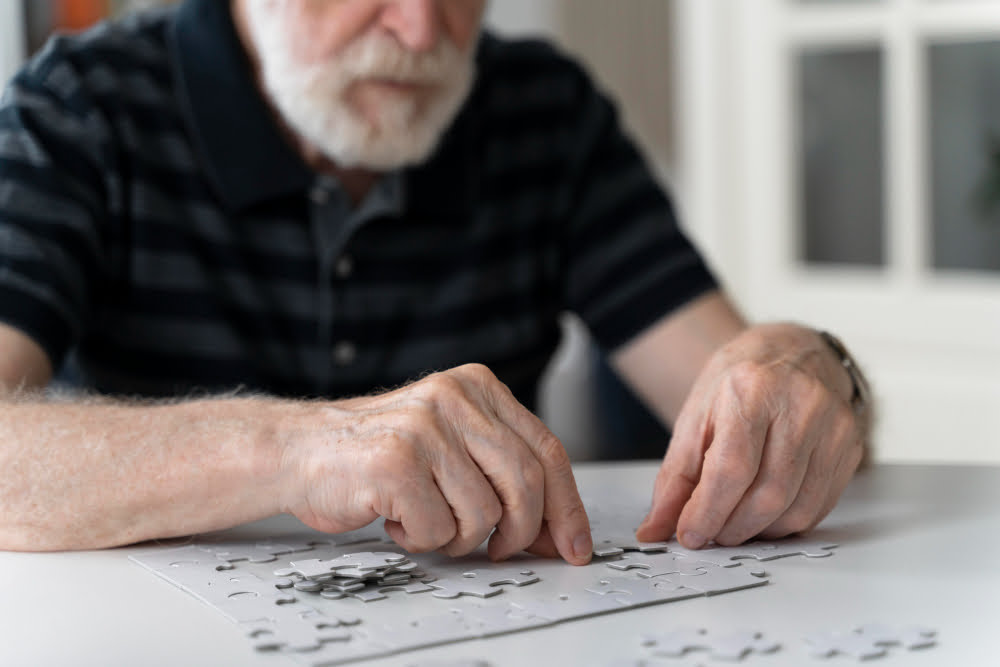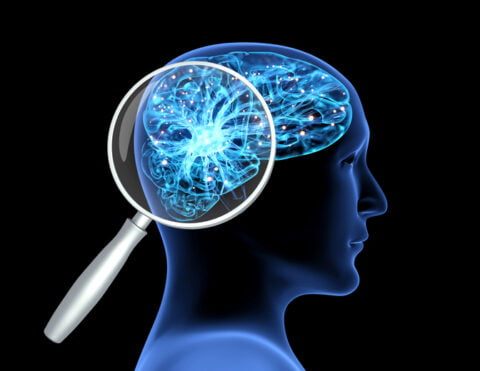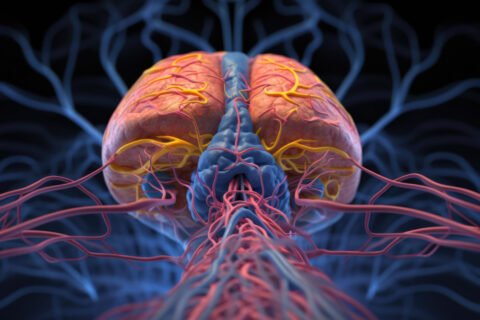Imagine a loved one getting diagnosed with dementia. It is reasonable to have questions and concerns about what is ahead. Understanding the phases of dementia can be a valuable tool for both patients and carers. This book will teach you about the course of symptoms, what to expect at each stage, and how to approach the problems with compassion and preparation.
What to Expect in Dementia Stages
Dementia is a broad term describing a deterioration in cognitive functions that interferes with daily activities. It goes through stages, each marked by different changes in thinking, behaviour, and physical ability. Here’s a breakdown of what you might experience at each stage:
- Mild Cognitive Impairment (MCI): This early stage often goes unnoticed. People may experience forgetfulness, difficulty concentrating, or struggling to find the right words. Daily activities remain largely unaffected.
- Early-Stage Dementia: Memory loss becomes more prominent. Individuals might have trouble managing finances, following directions, or planning complex tasks. Confusion and disorientation may also arise.
- Mid-Stage Dementia: As dementia progresses, memory and reasoning skills decline significantly. Daily tasks like dressing, bathing, and eating require assistance. Personality changes, mood swings, and difficulty communicating become more frequent.
- Late-Stage Dementia: In the final stages, individuals lose most of their cognitive abilities. They require complete dependence on caregivers for all aspects of daily living, including communication and physical care.
Duration of the 7 Stages of Dementia
The rate of advancement varies significantly. It might be slow and progressive, lasting years, or quick in rare circumstances. The type of dementia, the age of beginning, and overall health all have an impact on length. Early detection and management can sometimes delay disease progression.
Signs Dementia is Progressing
Here are some indicators that dementia may be worsening:
- Increased confusion and disorientation
- More frequent memory lapses and difficulty following conversations
- Changes in sleep patterns and appetite
- Greater difficulty completing daily tasks
- Increased episodes of behavioural problems like agitation or wandering

Rate of Dementia Progression
The rate at which dementia progresses is unpredictable. Some people may decrease gradually over time, while others may progress more quickly. Early diagnosis enables planning and support to maximise quality of life for the longest possible period of time.
Sleep Patterns in Dementia
Sleep disorders are frequent during the dementia stages. Daytime napping might become excessive, and overnight sleep can be disrupted by frequent awakenings, disorientation, or restlessness.
Eating Habits in Dementia
Eating habits usually change in mid-stage dementia. Individuals may lose interest in meals, forget to eat, or experience trouble chewing and swallowing.
Confusion in Dementia
Confusion is a hallmark sign of dementia at all stages. It can show as difficulties following conversations, disorientation in familiar environments, or forgetting previous occurrences. Strategies such as sticking to a routine and providing visual clues might assist manage disorientation.
Sleeplessness in Dementia
Sleep difficulties associated with dementia include insomnia and altered sleep cycles. Creating a relaxing bedtime ritual, reducing daytime naps, and providing a comfortable sleep environment can all help you sleep better.
Forgetting Family Members
Forgetting familiar faces and loved ones is common in the latter stages of dementia. It can be a stressful experience for both the person with dementia and their carers. Patience, encouragement, and gentle reminders can help you overcome this problem.
Unusual Behaviours
Dementia patients may exhibit strange behaviours such as roaming, hoarding, or irritability. Unmet wants or underlying worries are frequently the root cause of these behaviours. Addressing the underlying cause and creating a safe and stimulating environment can aid in managing these behaviours.
Most Serious Forms of Dementia
Alzheimer’s disease is the most common type of dementia, defined by gradual memory loss and cognitive deterioration. Frontotemporal dementia typically impairs personality, behaviour, and language abilities. Both kinds have severe stages that present substantial obstacles.
Final Stages of Dementia
The latter stages of dementia are characterised by significant cognitive decline, loss of communication abilities, and complete reliance on carers for all daily activities. Comfort care and maintaining a tranquil environment become the major goals.
How to Prepare Yourself for Dementia
A dementia diagnosis can be overwhelming, but there are steps you can take to prepare:
- Educate yourself: Learn about dementia stages, treatment options, and available support resources.
- Plan for the future: Discuss legal and financial matters with your loved one while they are still able to participate in these decisions.
- Consider care options: Explore assisted living facilities or in-home care services for future needs.
- Connect with support groups: Joining a support group can provide valuable resources, emotional support, and a sense of community for both the person with dementia and their caregivers.
Identifying Dementia Stages
Doctors diagnose dementia using a mix of cognitive evaluations, medical history reviews, and, in certain cases, brain imaging scans. Specific tests will be used based on the individual’s The specific tests done will depend on the individual’s circumstances. There is no single test that can definitively identify dementia.
Awareness of Confusion
People with dementia may be aware of their bewilderment in its early stages. This awareness might cause worry and dissatisfaction. However, as dementia progresses, self-awareness tends to decline.
Sudden Deterioration
In some circumstances, dementia can deteriorate quickly as a result of infections, drug changes, or underlying medical disorders. This is referred to as a delirious episode. If you detect a sudden deterioration in cognitive or physical ability, get medical assistance promptly.
Description of Stage 4 Dementia (Moderate Dementia)
Stage 4, also referred to as moderate dementia, is a turning point where daily life becomes significantly more challenging. Here’s a closer look at what you might expect:
- Memory Loss: Individuals may forget important details about themselves or their loved ones. Recalling recent events becomes increasingly difficult.
- Difficulty with Tasks: Performing daily tasks like cooking, managing finances, or using the phone requires assistance or supervision.
- Behavioural Changes: Personality changes, mood swings, and agitation become more frequent. Confusion and difficulty concentrating can also worsen.
- Communication Challenges: Following conversations and expressing thoughts becomes more challenging. Individuals may rely on repetitive phrases or struggle to find the right words.
Description of Stage 7 Dementia (Late-Stage Dementia)
Stage 7, also known as late-stage dementia, is characterised by severe cognitive decline and a complete dependence on caregivers. Here’s what this stage might look like:
- Minimal Communication: Verbal communication skills are significantly impaired. Individuals may rely on nonverbal cues or use simple phrases.
- Loss of Recognition: They may not recognize familiar faces, including loved ones.
- Physical Dependence: Complete assistance is needed for all daily activities, including mobility, eating, and dressing.
- Changes in Sleep-Wake Cycle: Day-night reversal and disrupted sleep patterns are common.

Staring Behaviours
Staring is a frequent occurrence in dementia patients, particularly in later stages. It can be caused by:
- Visual Processing Issues: Difficulty focusing or interpreting visual information can lead to prolonged staring.
- Sensory Seeking: Individuals with dementia may stare at objects for comfort or stimulation.
- Confusion: Staring can be a sign of confusion or disorientation, as the person tries to make sense of their surroundings.
Caregivers can respond to staring by:
- Gently approaching the person and offering a familiar object to hold or focus on.
- Reducing distractions in the environment.
- Providing verbal reassurance or gentle redirection.
Remember, dementia affects everyone differently. The progression of symptoms and the pace of decline can vary greatly. This guide provides a general overview, and it’s crucial to consult with healthcare professionals for personalised advice and support.
A: There are generally 7 stages, ranging from Mild Cognitive Impairment (MCI) with slight forgetfulness to late-stage dementia with complete dependence on care.
A: It varies greatly. Dementia progresses at different rates for each person, influenced by factors like dementia type, age of onset, and overall health.
A: Early signs can be subtle, including increased forgetfulness, difficulty concentrating, losing track of conversations, or struggling to find the right words.
A: Symptoms gradually worsen over time, impacting memory, communication, daily tasks, and behavior. Memory loss becomes more prominent, confusion increases, and performing daily activities requires more assistance.
A: No, there is currently no cure for dementia. However, some medications and therapies can help manage symptoms and potentially slow the progression.
A: If you notice concerning signs in yourself or a loved one, consult a healthcare professional. They can conduct assessments and determine if there’s an underlying cause for the cognitive decline.
A: Be patient, understanding, and create routines to provide structure. Offer reassurance, connect with support groups, and explore caregiving resources.
A: Alzheimer’s is the most common form, primarily affecting memory. Other types, like frontotemporal dementia, may impact behavior, language, or movement more significantly.
A: Personality changes are common in dementia and can include mood swings, agitation, anxiety, withdrawal, or apathy.
A: In the final stages, communication abilities are severely impaired. Individuals may not recognize loved ones and require complete dependence on caregivers for all daily activities.




